Does India's newest airport offer the world's best runway views?
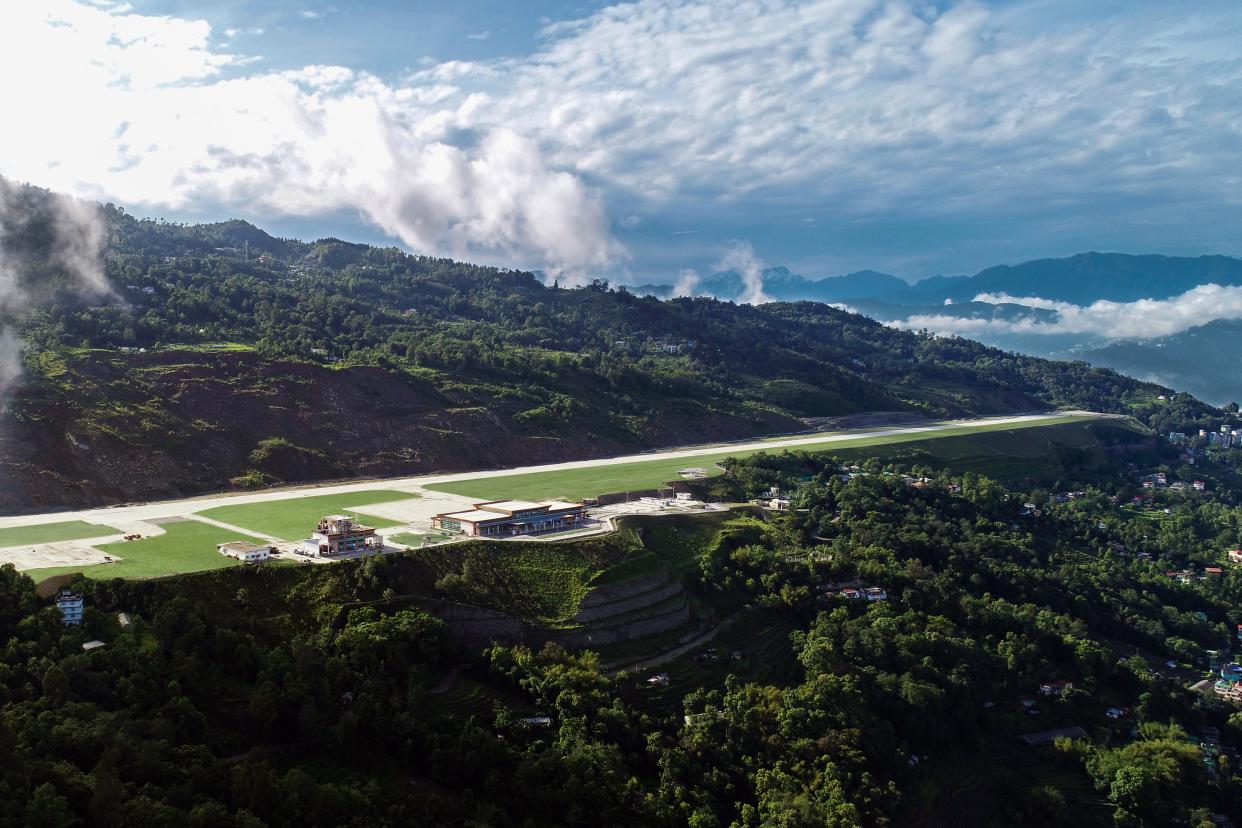
Perched 1,400 metres above sea level in a remote village of north-east India, and huddled amid the far-reaching Himalayan landscape, the new Pakyong Airport is ready for business.
Located just outside Gangtok, the capital of the state of Sikkim, Pakyong will operate its first commercial flight from Kolkata this week on October 4. The airport is expected to open a new door to tourism in the region, forming a gateway to neighbouring areas including the state of West Bengal in the south (where Sikkim’s previous nearest airport was located a five-hour drive away) and Bhutan in the east.
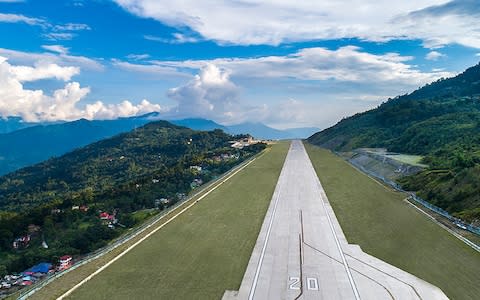
Pakyong will operate flights twice daily flights to Kolkata and Guwahati, the largest city in the Indian state of Assam in the north-east, on India’s largest low-cost carrier SpiceJet. Flights to Paro, Bhutan’s international airport, are expected to follow in January, operated by Druk Air, Bhutan’s national carrier.
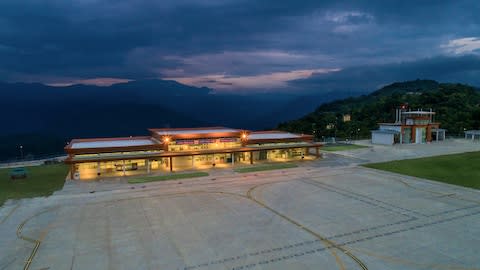
Praised as an “amazing feat of engineering”, Pakyong is one of the five highest airports in India and the first greenfield airport - one built entirely from undeveloped empty fields - in the north-east of the country.
Spanning around 900 acres, the airport grounds were carved from a mountainside and constructed using high-tech soil reinforcement and slope stabilisation techniques to ensure it can withstand movement at its high altitude, making it among the world’s tallest reinforced soil structures.
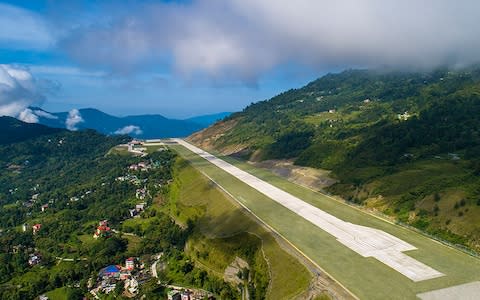
Its 1,700m x 30m runway, 116 metre-long taxiway and 106m x 76m tarmac can accommodate two ATR 72 aircraft (a French and Italian made twin-engine short-haul plane) at a time. Its 2,380 square-metre terminal building has a passenger capacity of 100 and can host up to 80 vehicles in its car park.
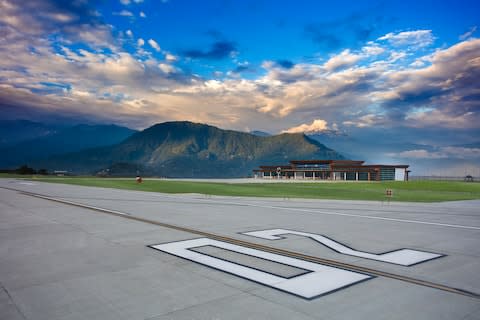
"This airport was built at a cost of $68.7million [£52.7million] and showcases our engineers, workers and their potential - how the mountains were cleared, the ditch was filled, the heavy rains they dealt with. This is truly an amazing feat of engineering,” stated India’s prime minister Narendra Modi at the airport’s inaugural ceremony last week.
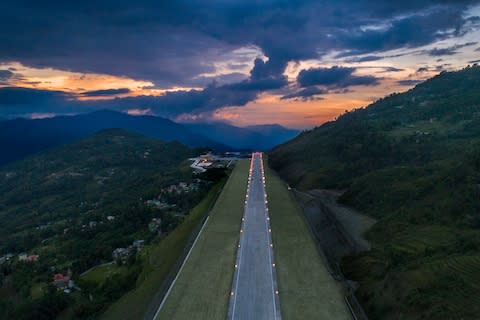
Bordering Tibet and Nepal, Sikkim is part of Eastern Himalayas and home to nearly 30 mountain peaks, including the nearly 8,590 metre-high Kanchenjunga (the third highest on Earth and India’s highest) as well as more than 200 lakes and 21 glaciers, with both alpine and subtropical climates.

Nearly a third of the state is covered by the Unesco-designated Khangchendzonga National Park and Biosphere reserve, and it's the first state in India to go fully organic with its agriculture.

"Sikkim is one of India's most beautiful states, heavy rains leaving it lush and fertile. But it is the looming presence of Kanchenjunga that lends the region its defining magic," described Jon Stock when he visited the region back in 2010 for Telegraph Travel.
Sandipan Ghosh, secretary of the Eastern Himalayan Tour and Travel Operators Association, told The Economic Times: “This region receives high number of visitors from Chennai, Hyderabad or Mumbai too. Hence, connecting these places is important to get the best possible gain out of the airport."
The opening of Pakyong Airport marks the 100th airport in India. Its close proximity to the Indo-China border, just 60 kilometres away, is also expected to boost the country’s defence forces by hosting planes from the Indian Air Force.